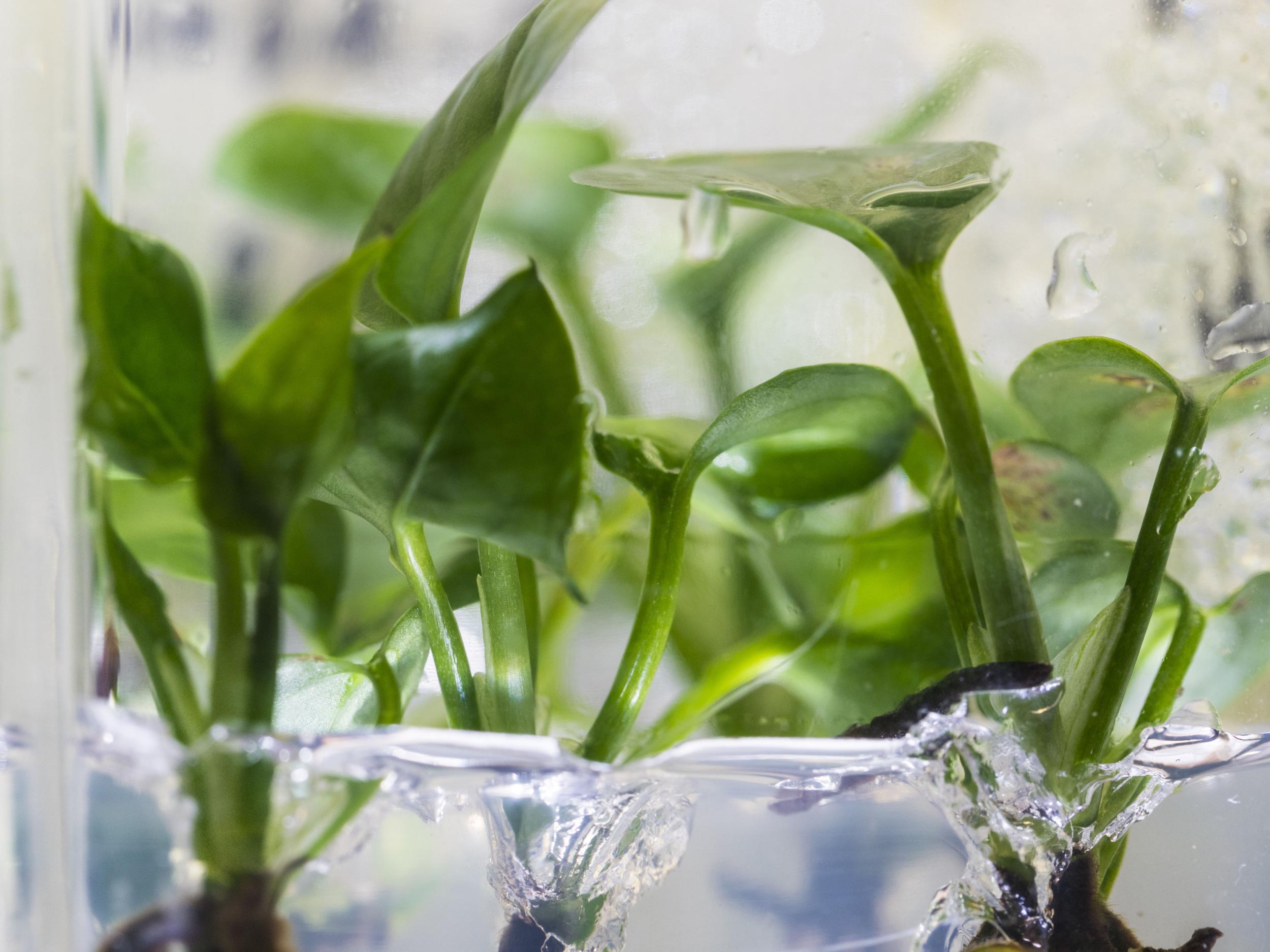Plant genetically modified with rabbit DNA able to clean pollution from air in homes
Engineered ivy has gene found in human livers involved in breaking down alcohol

A rabbit gene has been inserted into common houseplants, giving them the power to filter toxic pollution from the air.
Scientists hijacked a process that breaks down alcohol in the liver to create plants they say could make ordinary households safer.
Homes often accumulate small pollutants known as volatile organic compounds, produced by everyday activities and items ranging from smoking to furniture.
These substances tend to be overlooked as contributors to air pollution, but some, such as benzene and chloroform, have been linked with cancer.
To remove these pollutants, a team of scientists harnessed the power of genetic engineering and the ability of mammals to eradicate harmful substances using a naturally occurring protein.
This substance is able to break down benzene and chloroform into harmless byproducts.
Known as 2E1, the protein is present in all mammals, including humans, but as it is found inside the liver and is switched on when processing alcohol, it does not protect them from air pollution.
“We decided we should have this reaction occur outside of the body in a plant,” explained project leader Professor Stuart Strand, from the University of Washington.
To achieve this, the scientists made a copy of the gene that codes for 2E1 protein in rabbits, and inserted it into the popular houseplant pothos ivy.
Each cell of the resulting plants was therefore turned into a miniature factory for 2E1, or a “green liver”.
To test how well their plants performed as living air filters, they placed them in glass tubes filled with potentially harmful household pollutants.
They found that within just six days chloroform was virtually undetectable, while benzene levels had dropped by three-quarters after eight.
As a comparison, the scientists repeated the experiments with unmodified plants and found the concentration of these gases did not change at all over this period.
The results were published in the journal Environmental Science and Technology.
Though the experimental conditions used higher levels of pollutants than typically found in homes, the scientists suggested their plants could be used to clean up household air.
They now intend to target formaldehyde, another dangerous chemical found in cigarette smoke and laminate flooring.
“These are all stable compounds, so it’s really hard to get rid of them,” explained Professor Strand.
“Without proteins to break down these molecules, we’d have to use high-energy processes to do it. It’s so much simpler and more sustainable to put these proteins all together in a houseplant.”
As pothos ivy does not flower in temperate climates, the researchers reasoned that there was a low risk of their genetically modified creations spreading their pollen into wild populations.
Even unmodified plants can play a vital role in cutting other forms of air pollution, and “living walls” have been recommended for polluted schools in London to protect children.
Join our commenting forum
Join thought-provoking conversations, follow other Independent readers and see their replies
0Comments